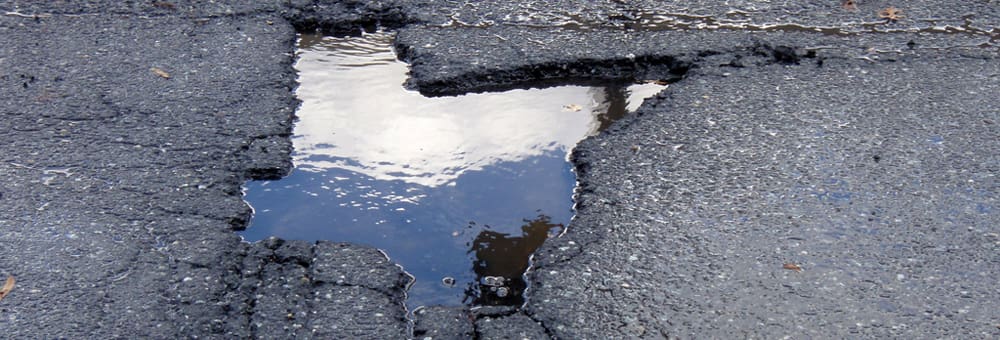It is painfully apparent to Houstonians that their city’s financial practices are less than prudent. With a strong-mayor system repeatedly run by far-left mayors whose official privilege includes writing the city budget, it comes as little surprise that Houston will see a $120 million deficit next fiscal year. Priorities such as addressing soaring debt obligations and much-needed road repairs take a backseat to the non-issue of transgender bathrooms. When these pressing fiscal concerns are addressed at all, the solutions bear the famous myopia of typical liberal fiscal policy. One such hallmark instance is Houston’s Drainage Fee, or “Rain Tax.”
Citing the urgency of improving Houston’s roadway conditions, voters in 2010 narrowly approved Proposition 1, which implemented a “Drainage Fee” on property owners marketed as a pay-as-you-go plan to fund much needed drainage and roadway repairs. The fee is assessed on property owners based on aerial surveys of their property, used to calculate square footage of impervious cover, (typically concrete), which determines the monthly tax the property owner pays. The funds are allocated in a Robin Hood-esque priority model Annise Parker calls “Worst-First.”
To help sell the proposal, property owners were sent sample bills showing how much they would end up paying with the new fee. Predictably, those figures were unrealistically modest. As such, many property owners have ended up seeing much higher rates than promised in 2010.
Despite all this, roadwork has declined sharply. As Deputy Director of the city’s Public Works Department told ABC13, “Fewer roads are being fixed.” Why? While some may cite budget cuts, the real culprit would appear to be the notorious hallmark of liberal leadership: Short-sighted and nebulous budgeting practices.
On June 18th the Houston City Council approved Mayor Parker’s spending plan and 63 amendments. The largest amendment increased the budget by $11 million; giving each of the 11 district council members $1 million to spend arbitrarily on projects in their district, pending approval by the Mayor (and in some cases, the council at large.)
What could go wrong?
For one, they could raid the narrowly passed aforementioned Rebuild Houston drainage fund in order to provide the funds for the councilmember’s new discretionary piggy-banks. In a 15-2 vote on July 9th, council members did exactly that: taking $31 million out of Rebuild Houston to expedite projects and resolve smaller neighborhood problems. Of that $31 million, $6 million would be combined with $5 million allocated from a previous budget amendment to fully fund council member’s pet projects, for a total of $1 million per district.
When Houston voters approve of a tax or fee for a stated fund, Houstonians should rightfully expect that money be utilized efficiently and directly for the purpose stated. Such a diversion hardly inspires confidence in the council or Mayor Parker’s fiduciary discipline. As former Houston City Councilman and current Tax-Assessor Collector for Harris County Mike Sullivan states, “Mayor Annise Parker has to work hard to regain the trust of her constituents. She first underestimated the monthly cost to homeowners for the ‘rain tax’ by over 50%, and is now drawing money from the dedicated account to give district council members what is essentially a slush fund. This reallocation of funds raises serious questions.”




